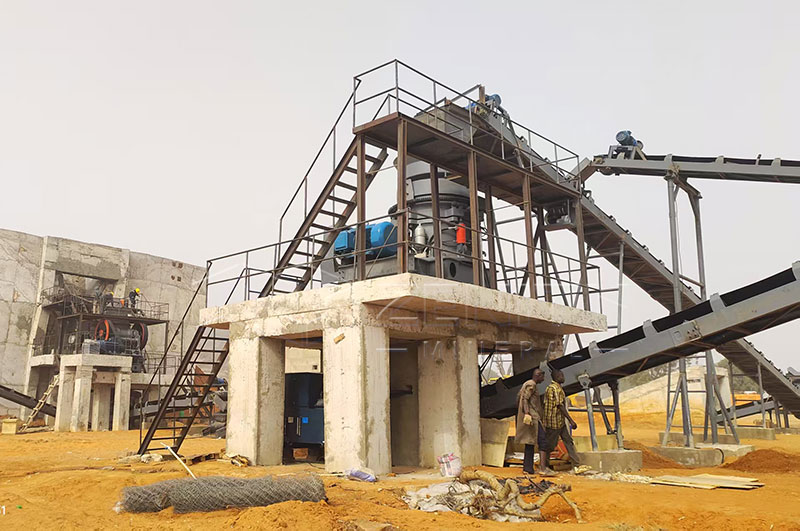
A crusher rated at 100 tons per hour means it can process 100 metric tons of raw material-such as river gravel, granite, or basalt-every hour under optimal conditions. This translates to a daily output of roughly 800 to 1,000 tons assuming 8 to 10 hours of operation per day, depending on operational efficiency and downtime.
A 100 TPH crusher is ideally suited for small to medium-sized quarry operations. These quarries usually supply aggregates for local markets, including urban construction, road building, and smaller infrastructure projects. The capacity strikes a balance between meeting moderate demand and maintaining manageable investment and operational costs.
Production Capacity: 100 TPH provides sufficient throughput to supply regional construction demands without the complexity of large-scale plants.
Investment Cost: Equipment and infrastructure costs for 100 TPH setups are significantly lower than those for larger plants, making them accessible to emerging quarry businesses.
Thus, a 100 TPH crusher offers a practical, cost-effective solution for many quarry operators in Cameroon.
Several crusher types are suitable for achieving a 100 TPH capacity, each with distinct advantages depending on the material and stage of crushing. Below are the primary options:
Jaw crushers are the workhorses of primary crushing, ideal for handling hard rocks like basalt and granite, which are common in Cameroon. For a 100 TPH operation, a jaw crusher like the PE750×1060, with a feed opening of 750×1060 mm, is a popular choice due to its reliability and ability to handle tough materials.
Impact crushers are suited for secondary or tertiary crushing, particularly for softer or medium-hard materials like limestone or weathered river gravel. For a 100 TPH plant, a horizontal shaft impact (HSI) crusher, such as the PF1214, offers high reduction ratios and adjustable output sizes (10–100 mm).
Cone crushers excel in secondary and tertiary crushing, providing precise sizing for applications like road base or fine aggregates. For 100 TPH operations, a cone crusher like the HPC300 or CS220 is efficient, offering high throughput and low dust production.
Mobile crushers, including jaw, impact, and cone variants, are increasingly popular in Cameroon due to their flexibility and reduced haulage costs. Mounted on tracks or wheels, they can be relocated easily, making them ideal for quarries with multiple sites or challenging terrain. For 100 TPH, compact mobile units offer high performance with feed capacities up to 350 tons per hour, scaled down for efficiency.
A 100 TPH crushing production line typically follows a multi-stage process: primary crushing, secondary crushing, screening, and stockpiling. Below is a detailed breakdown, including an example from a Cameroon granite crushing line.
Screening is critical to meet market specifications. For example, concrete production requires fine aggregates (0–10 mm), while road base needs coarser material (20–63 mm). Proper screening reduces waste, ensures product quality, and maximizes the value of the output. In Cameroon, where aggregates are often used for local infrastructure, precise sizing enhances project efficiency and compliance with standards.
A quarry in Douala, Cameroon, operates a 100 TPH granite crushing line. The setup includes:
In Cameroon, mobile compact crushers are gaining traction for their ability to process basalt and river gravel efficiently. For instance, a quarry near Yaoundé uses a Zenith mobile jaw crusher to process basalt for road base. With a feed capacity of up to 225 TPH, it is throttled to 100 TPH for optimal fuel efficiency and wear management.
Laissez votre message ici, nous vous enverrons immédiatement un e-mail.